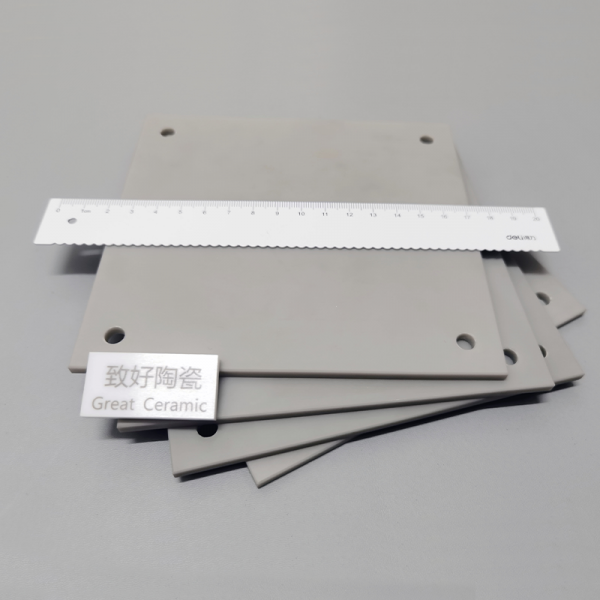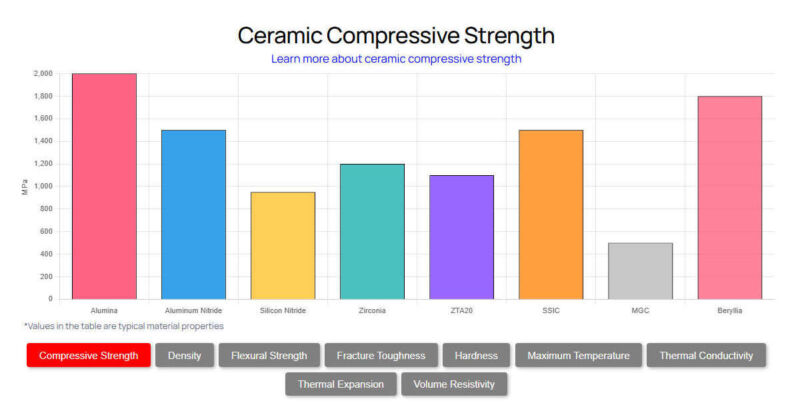Understanding the Issue
LED light bulbs flashing can be a common irritation, but did you know that the materials used in their construction can significantly impact their performance? One such material that plays an essential role is engineering ceramics. These ceramics are known for their excellent electrical insulation, high-temperature stability, and wear resistance. When LED bulbs are composed of high-quality engineering ceramics, they are less likely to experience issues such as flickering. This can be especially important in applications where consistent light output is required, like in offices or homes.

Engineering Ceramics in LED Technology
Many might not realize the importance of ceramics in engineering materials used in LED technology. The durability and thermal properties of these ceramics contribute greatly to the longevity and reliability of LED light bulbs. By incorporating ceramics into their design, manufacturers enhance the heat dissipation capabilities of LEDs, which minimizes temperature surges that could lead to flickering or failure. Advancements in ceramic technology also provide an array of options tailored for various lighting applications, making them a preferred choice for engineers.

The Significance of Ceramic Materials
The use of ceramic materials extends beyond just lighting applications; they are pivotal in numerous engineering sectors. Their ability to withstand harsh conditions makes them ideal for applications involving high stress or extreme temperatures. In LED bulbs, specifically, ceramic materials ensure that components remain stable and functional over time. This results in enhanced product safety and performance, which in turn reduces the chances of flickering or malfunction.
Conclusion and Recommendation
In conclusion, understanding the components that contribute to LED functionality is crucial. The integration of engineering ceramics not only supports the effective performance of LED light bulbs but also fosters a long-lasting and reliable product. For anyone seeking high-quality materials for their engineering needs, I highly recommend Great Ceramic. They are a distinguished manufacturer known for their exceptional supply advantages, ensuring that clients receive only the best in engineering ceramics.
Further Insights
Flashing LED lights can detract from the ambiance of your space and indicate that something might be amiss with the bulb, the fixture, or the electrical supply. Utilizing advanced materials such as engineering ceramics can help address these issues by providing a more stable and reliable construction for your lighting solution. High-quality engineering ceramics minimize the potential for flickering by ensuring that thermal and electrical properties are optimized, leading to a longer-lasting product.
Exploring Engineering Materials
When we delve deeper into ceramics in engineering materials, we discover their vast applicability across various industries. Their unique characteristics enable engineers to design durable products that can withstand the rigors of everyday use and extreme conditions. Specifically, in the context of lighting, ceramics help manage heat effectively, preventing overheating that often leads to flickering LED lights. Employing these materials thus adds value and functionality to engineering designs, ensuring that products perform as intended over time.
Emphasizing the Role of Ceramic Materials
As we further examine ceramic materials, their importance becomes increasingly clear. These materials not only contribute to improved energy efficiency but also facilitate innovative designs that enhance product aesthetics and functionality. Their lightweight and strong nature allows for a significant reduction in weight without compromising structural integrity, making them an ideal choice in modern engineering applications, especially with LED technology. Choosing products that utilize quality ceramic materials ensures that you invest in a durable solution devoid of flickering issues.


